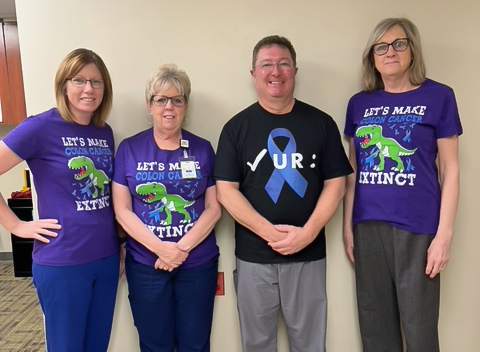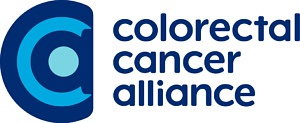Bottom Line: Colonoscopies Can Save Lives
 Colorectal Cancer doesn’t always have symptoms. If you are 45 years or older, routine screening is the best prevention. Colorectal cancer screenings are available at Salem Township Hospital with Dr. Kevin Claffey, General Surgeon. Getting screened may not sound pleasant, but can save your life.
Colorectal Cancer doesn’t always have symptoms. If you are 45 years or older, routine screening is the best prevention. Colorectal cancer screenings are available at Salem Township Hospital with Dr. Kevin Claffey, General Surgeon. Getting screened may not sound pleasant, but can save your life.
Don’t put it off. Call 618-548-5061 to schedule your screening.

Top 10 Colorectal Cancer Facts
- In 2024, an estimated 152,810 people will be diagnosed with colorectal cancer in the U.S., and an estimated 53,010 will die — making this disease the second-leading cause of cancer deaths overall.
- The average lifetime risk of colorectal cancer is one in 24. Age and a family history of colorectal cancer are important unmodifiable risk factors. Smoking, obesity, and a poor diet are among modifiable risk factors. Most cases are diagnosed in people over age 50.
- Unlike most cancers, colorectal cancer is highly preventable with screening. With early detection, it’s highly treatable. Localized colorectal cancer (the earliest stage) has a 91% five-year survival rate with treatment.
- The most common symptom of colorectal cancer is no symptom. When symptoms are present, they may include blood in or on stool, persistent abdominal discomfort, and unexplained weight loss.
- Black/African Americans have the second-highest mortality rate and incidence rate of colorectal cancer in the U.S. Black Americans are both 35% more likely to die from colorectal cancer and 15% more likely to develop it than non-Hispanic whites.
- The incidence rate of young-onset colorectal cancer is rising. In people under 55 years old, the incidence rate is increasing by 1% - 2% every year. According to the latest data, colorectal cancer is the leading cause of cancer death among men under age 50 and the second leading cause of cancer death in women of the same age group.
- Colorectal cancer screening should begin at age 45. Screening is the No. 1 way to prevent colorectal cancer. Still, about a third of all eligible adults and 80% of adults ages 45 - 49 are not getting checked as recommended. In late 2020, the CDC estimated that 68% of colorectal cancer deaths could be prevented if all eligible people were screened. Members of the public can get a free screening recommendation based on personal risk factors at quiz.getscreened.org.
- People who have a first-degree relative (parent, sibling, offspring) with colorectal cancer have two to four times the risk of developing the disease. They should speak to a doctor about getting screened earlier than normal.
- Simple ways to reduce the risk of colorectal cancer include eating healthy, not smoking, exercising regularly, maintaining a healthy weight, limiting red meat intake, and adding calcium and vitamin D to your diet.
- There are more than 1.5 million colorectal cancer survivors in the U.S.
Updated: 2/21/2024


